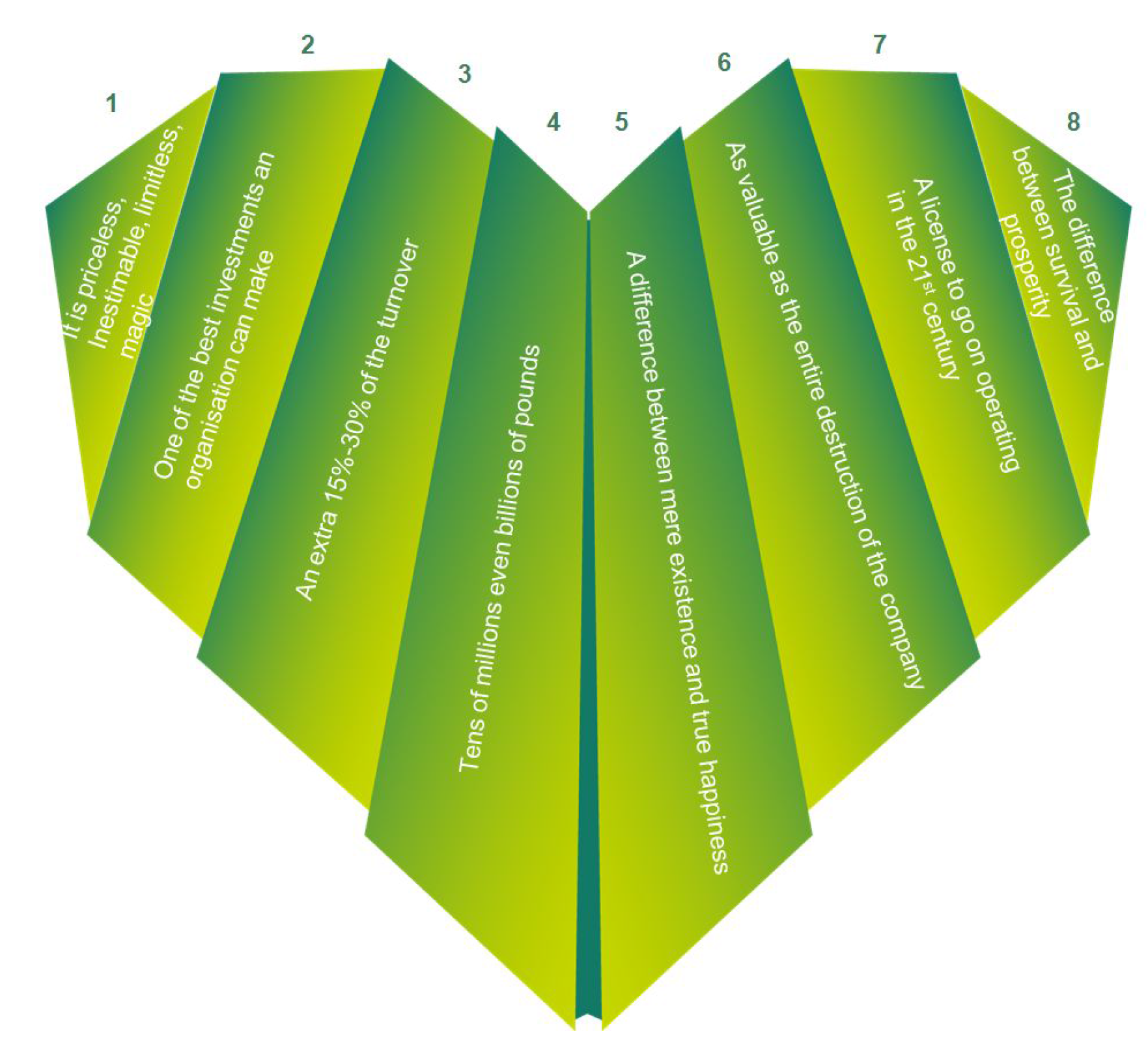Business as usual is no longer an option. A narrow focus on maximizing short-term financial returns has led directly to corporate scandals, environmental disasters from climate change to plastic waste in the oceans, low employee morale, distrust in institutions and the Great Financial Crash of 2007-2008. Yet amid this succession of crises, a more optimistic picture is emerging, supported by a growing body of evidence that makes an economic, as well as a moral, case for a different approach to business.
It was assumed, until recently, that the business interest was on a collision course with social and environmental concerns. Recent research findings challenge this assumption. It turns out that organisations can secure superior financial returns not in spite of, but because of, humanising organisations with highly purposeful and engaged staff, displaying social and environmental responsibility. Organisations can do well by doing good.
I had the privilege of interviewing 58 business leaders at the forefront of this change, for my latest book Humane Capital. It validates, and builds on, the research I completed for an earlier work, The Management Shift, which identified five levels of engagement and performance of staff, from ‘Level 1’, denoting people who were actively disengaged, to ‘Level 5’, passionately committed. It also explained how to align engagement initiatives with strategy and processes, to harness this commitment to serving customers. This approach is more balanced and strategic than being guided by staff engagement alone, because sometimes employees can be enthused but are working towards a strategy that is too risky or poorly thought through.
Ample evidence is emerging from Humane Capital and other research studies that both individuals and organisations can obtain huge advantages when they go through the ‘big shift’ and start to work in humane organisations. One of the biggest returns comes from the commercial and financial benefits that are created, as well as talent retention. In researching Humane Capital, I asked interviewees to estimate the economic value of making the shift from old methods of working based on command and control to new, more humane ways, grounded in people, purpose and collaboration. Some quantified it in millions of pounds, dollars or euros; others described the shift as ‘priceless’, while one or two credited the move with saving the business during a period of challenging market conditions and technological change. One interviewee observed:
‘The main value [of the shift] is life as opposed to death. Organisations won’t survive in their current state, so this is a way to be prosperous in a world in which the balance of power has shifted from the seller to the buyer, and if they don’t make this shift then they are not fit for this world.’
Figure 1 shows a selection of other quotes on the value of humanizing organisations.

Figure 1. Quotes on the value of humanizing organisations
Such a transformation is more than an opportunistic means to the end of higher profits – instead it is a different philosophy of understanding what a business is and how people are best deployed within it. The Level 3 concept of the organisation as a set of static resources gives way to a Level 4 and 5 understanding that sees it rather as a network of intelligent people. Level 3, hierarchical corporations, with rigid departments and limited team-working, are geared to the sub-optimal deployment of the latent human intelligence. Moreover, as they feature multiple regulations and other controls, they are slow to respond to market and technological challenges. At Levels 4 and 5, organisations feature the agility that most observers now recognize as essential for adapting to a world of digital start-ups and artificial intelligence.
At the heart of this new philosophy is a challenge to older assumptions that different constituencies were always in conflict; that workers could only gain at the expense of capital, and that society and the environment always lost out from profit-making activities. We know now from research that this reductionist and cynical approach is not borne out by how the highest-performing organisations work.
When undertaken comprehensively and with integrity, the shift is experienced at the individual and at the collective level, with different constituencies gaining simultaneously. The benefits of the shift towards more humanized organisations are financial and commercial, as well as personal and human. It transforms the quality of life for those people who now work for an organisation that has a purpose they believe in, and whose leaders encourage and coach them to make the most out of their abilities. For many, this gift is priceless.
- Humane Capital, by Professor Vlatka Hlupic, is published by Bloomsbury Publishing 2018. It features 35 case studies from different sectors, based on interviews with 58 leading thinkers, entrepreneurs and business executives.
About the Author:
Professor Vlatka Hlupic is a Thought Leader, University Professor, Keynote Speaker, Consultant and CEO at The Management Shift Consulting Ltd
This article is one in a series related to the 10th Global Peter Drucker Forum, with the theme management. the human dimension, taking place on November 29 & 30, 2018 in Vienna, Austria #GPDF18
This article was first published on Linkedin.


Wonderful. How can I get copy of full article paper?